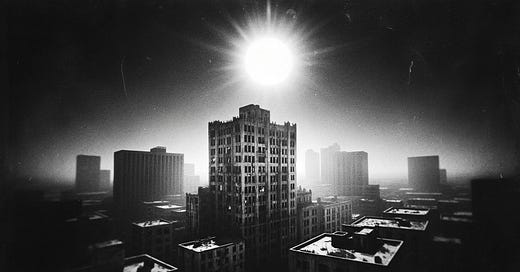“Do you want to watch?” I ask.
“I do,” she says, her voice trembling. “…and I don’t.”
My sister's voice catches as we watch the clock. Her toes curl tight into the blanket, fighting back the fear. I've seen this a hundred times—slow, deep breaths until the panic fades. The others try to mirror her stillness.
I call her sister but, like the rest, she’s not blood—circumstance made us family. The five of us, stowaways, left behind by the chaos. When their questions tumble out, I do my best to piece together a past they don't remember—solemn broadcasts, then panic. I try to explain the simple truth: the sun is dying. Soon darkness will be all we know.
Keep reading with a 7-day free trial
Subscribe to Tiny Worlds to keep reading this post and get 7 days of free access to the full post archives.





